A team that works well together is far more capable of reaching their goals than one that is plagued by discord and dissent. Bringing a group of people together to work on a common goal isn’t always as simple as hiring the best people for the skills that are needed. Personality traits, communication and working styles all influence a team’s productivity. Read on to find out how to create a more productive team.
Why teams can be unproductive
Personality clashes, lack of personal ownership and unclear communication can all damage a team’s productivity. Personality clashes shouldn’t be a huge issue if you consider your company culture when you’re looking for a new placement – focusing solely on skills can sometimes lead to difficulty.
Personal responsibility and a sense of accountability can increase motivation and drive at work. These traits are beneficial for teamwork and impact a candidate’s conduct both in and out of the workplace. It can be as simple as your sleep behaviors that may be affecting productivity and punctuality. Are you getting enough sleep? There are easy ways to adapt your sleeping habits to help increase accountability at work.
Poor communication can be the bane of teamwork. Getting your message across clearly is just part of the teamwork equation – inner-team communication is just as important for making sure people stay on track as it is to reach team goals. Building relationships and remembering communication is a two-way street are key to ensure everyone understands each other. Make sure you provide time for questions to clarify your directives, encourage feedback from your team and agree on the best form of communication for the project.
How to increase productivity within teams
Each team member has a particular role to play whether it’s focusing on the user experience; the architecture of an app or site, or the content that gets the message across to consumers. Giving each team ownership of a project with individual autonomy can go a long way to improving productivity and accountability. This approach to team management has been proven to increase employee turn-over.
Incentives are a great way to provide people with a little more motivation to work toward a tangible goal and to go the extra mile. Consider project and/or milestone incentives that align with the goal and effort needed to complete it by team members.
Transparency within a team can support accountability, build stronger relationships and, of course, foster trust; each of which are integral elements for creating productive teams. Being clear about deadlines, timeframes, and client concerns will help your team understand the challenges of any project. Being cognizant about personal stress points, wins and fails will continue to foster an open atmosphere that makes it easier for team members to admit to their own errors, stress points and/or worries about a project; increasing communication.
Creating a communicative environment, encouraging autonomy in conjunction with teamwork, and maintaining clarity within each project help teams achieve difficult goals, improve productivity, employee retention and employee development. After all, if the team is achieving their goals, so is the company.

